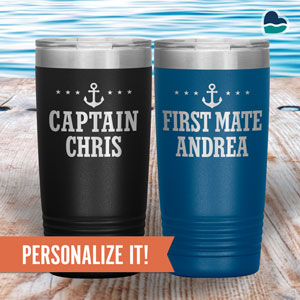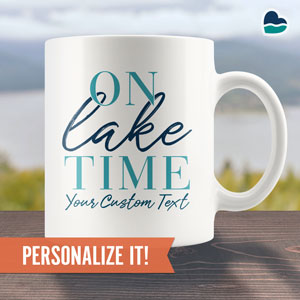Kootenay Lake, British Columbia, Canada
Also known as: Lake Kootenay
Kootenay Lake’s deep, clear waters stretch over 60 miles and 96,000 acres, reflecting the icy peaks of Kokanee Glacier. The lake is beautiful, ringed with the Selkirk and Purcell Mountain Ranges. The lake is home to the Gerrard Rainbow Trout, the world’s largest trout, known for their size and ability to put up a good fight. Kootenay Lake is one of the largest natural lakes in British…
Keep scrolling to read more.
Welcome to the ultimate guide to Kootenay Lake! Article topics include:
- All About Kootenay Lake
- Where to Stay
- Vacation Planning Tools
- Things to Do
- Known Fish Species
- Kootenay Lake Map
- Statistics / Weather / Helpful Links
- Kootenay Lake Gifts
Looking for Kootenay Lake cabins or other accommodations? Save time and use this interactive map to find, compare and book at the best rates. Or explore more of our favorite travel partners.
This post contains affiliate links. If you click and purchase, we may earn a small referral fee at no extra cost to you. Read our full disclosure.
Explore Area Hotels
Nearby offer more hotel accommodations:
All About Kootenay Lake, BC
Kootenay Lake’s deep, clear waters stretch over 60 miles and 96,000 acres, reflecting the icy peaks of Kokanee Glacier. The lake is beautiful, ringed with the Selkirk and Purcell Mountain Ranges. The lake is home to the Gerrard Rainbow Trout, the world’s largest trout, known for their size and ability to put up a good fight.
Kootenay Lake is one of the largest natural lakes in British Columbia, and it’s full of fish. In addition to the Gerrard Rainbow, the waters also hold Dolly Varden trout, kokanee salmon, and bull trout. A 29.5-pound Canadian record bull trout was caught in Kootenay Lake in 1997.
There are three dams that impound Kootenay Lake. Built in 1932 for power generation and water storage, the Corra Linn Dam is at the mouth of Kootenay Lake. The Duncan Dam was built in 1967 at the north end of the lake, and Libby Dam was built in 1973 on the Kootenay River. Both were built for water storage only. The main part of Kootenay Lake runs north to south, following the path of the Kootenay River. In many ways, it is just a place where the river paused to fill the valley.
About halfway up the main lake, the west arm extends 18 miles to the town of Nelson. With a maximum depth of 154 feet and a surface area of about 5,930 acres, it is a large lake in its own right. The west arm also has a very rich history and is still important today. The West Arm Provincial Park was created to preserve and protect the area’s history of mining, railway development and paddle steamer sternwheelers. In addition to trails for hiking and biking, the 62,565-acre park has walk-in and wilderness camping.
In September of 1876, gold was discovered about nine miles from what would become the town of Nelson. Gold mining brought a small rush of people to the area, and in 1897, Nelson was established. Eventually the mines ran dry, but by then construction on the narrow gauge railway was underway. Named the “#1 Small Arts Town in Canada,” today Nelson is a charming town with restaurants, shops and any amenities a visitor to Lake Kootenay might want, including lakeside vacation rentals.
Because they can carry loads and operate in shallow water, Sternwheelers were used to transport materials for the railroad and passengers from the late 1800’s through the 1950’s. The SS Moyie is the world’s oldest intact passenger sternwheeler, and it served on Kootenay Lake for almost 60 years. The SS Moyie has been restored and is now part of a museum and visitor center in Kalso, another west arm town. Also established around mining, Kaslo is a charming Victorian village, and with real estate for sale, it would be a great place to live for anyone considering an extended stay at Kootenay Lake.
Kokanee Creek Provincial Park is also located on the west arm of Kootenay Lake. The park offers sandy beaches for swimming, trails for hiking and cross-country skiing, and camping. Kokanee Creek is the spawning ground for the lake’s kokanee salmon. In August, the salmons’ bodies turn a deep crimson and their heads turn emerald green before they spawn and die.
There are several provincial parks along the main part of Lake Kootenay as well. Established in 1922, Kokanee Glacier Provincial Park stretches over 79,160 acres in the Selkirk Mountains. Experienced climbers can explore the breathtaking Kokanee Glacier. Encompassing 9,227 acres from Lockhart Creek to Kootenay Lake, Lockhart Creek Provincial Park has trails for hiking, biking and horseback riding. It protects an old growth forest and offers fantastic views of the lake. The much smaller Kootenay Lake Provincial Park has seasonal camping, a picnic area and boat launch on the lake’s shore. Northwest of Kootenay Lake, the Goat Range Provincial Park protects the only natural spawning ground of the Gerrard Rainbow Trout.
By far the largest provincial park near Lake Kootenay, the Purcell Wilderness Conservancy Provincial Park and Protected Area, is 500,905 acres of magnificent Canadian wilderness set aside for rock climbing, horseback riding, hiking, hunting and back-country ski touring. Canada’s Governor General from 1904 through 1911, Earl Grey crossed the Purcell Mountains and was so enamored of the area, he built a vacation cabin for his family. The Earl Grey Trail follows part of his original route where the remains of the cabin are still visible.
Kootenay means “water people”, a term that applies to visitors to the lake today. With miles of water to explore, there is room for canoes, kayaks, houseboats and power boats. The lake promises sailing regattas and windsurfing along with water skiing. The clean, clear water of Lake Kootenay and its high concentration of shipwrecks also makes it a great place to dive. With so much to do on Lake Kootenay, maybe catching the big fish really isn’t that important, but it is sure worth a try.
Things to Do at Kootenay Lake
These are some activities in the Kootenay Lake, BC area visitors can enjoy:
- Vacation Rentals
- Fishing
- Boating
- Sailing
- Swimming
- Beach
- Canoeing
- Kayaking
- Water Skiing
- Camping
- Picnicking
- Cabin Rentals
- Hiking
- Rock Climbing
- Biking
- Cross-Country Skiing
- Horseback Riding
- Hunting
- Provincial Park
- Museum
What Kind of Fish Are in Kootenay Lake?
Kootenay Lake has been known to have the following fish species:
- Bull Trout
- Dolly Varden Trout
- Kokanee Salmon
- Rainbow Trout
- Salmon
- Trout

Find Places to Stay at Kootenay Lake
If you’re considering a Kootenay Lake lake house rental or hotel, we’ve made it super easy to find the best rates and compare vacation accommodations at a glance. Save time using this interactive map below.
Note: These are affiliate links and we may earn a small commission if you click and make a purchase. Read our full disclosure policy here.
More Sites to Book a Kootenay Lake Vacation
Our interactive Kootenay Lake lodging map above is an easy tool for comparing VRBO rental homes and nearby hotels with Booking.com, but there could be times when you need to expand your search for different types of accommodations. Here are some other lake lodging partners we recommend:
Kootenay Lake Statistics & Helpful Links

Lake Type: Natural Freshwater Lake, Dammed
Water Level Control: International Kootenay Lake Board of Control
Surface Area: 96,124 acres
Shoreline Length: 124 miles
Normal Elevation (Full Pond): 533 feet
Average Depth: 308 feet
Maximum Depth: 505 feet
Water Volume: 29,753,174 acre-feet
Completion Year: 1932
Water Residence Time: 1.8 years
Drainage Area: 17,600 sq. miles
More local lakes to explore in this area:
We strive to keep information on LakeLubbers as accurate as possible. If you’ve found something here that needs updating, please touch base by filling out our Content Correction form.
Shop Kootenay Lake Gifts
More Kootenay Lake news from LakeLubbers.com
- Advertise your vacation rental property or local business: DETAILS HERE
- The Kootenay Lake forum has been discontinued: HERE’S WHY
- New Kootenay Lake photos coming soon!
- You’re invited to join our lake-lovin’ community on Facebook and Instagram!
- Share this Kootenay Lake article with your fellow LakeLubbers:



